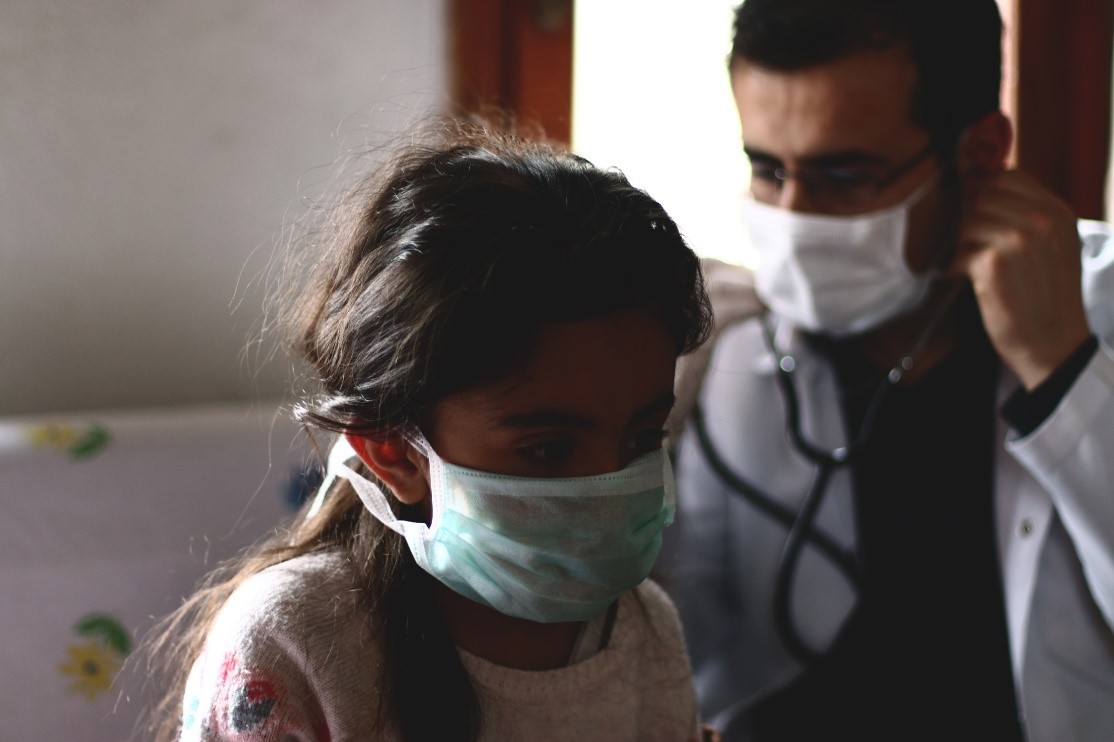Understanding Why Underserved Populations are Disproportionately Impacted by COVID-19
06/15/2020

While the effects of the COVID-19 pandemic are still emerging, current data suggests certain populations are more vulnerable to the novel coronavirus than others. According to a recent from APM Research Lab, African Americans are dying from the virus at nearly three times the rate of white Americans. In 42 states and Washington D.C., Hispanics/Latinos make up a greater share of confirmed COVID-19 cases than their share of the population. Early data also indicates dramatically disproportionate rates of infection and death among Native Americans. ÈâÈ⴫ý recently announced new partnerships addressing these inequities as part of our commitment to ensuring underserved populations can access high-quality healthcare.
"Over the past few months, we have experienced a world upended by a global pandemic and a country faced with civil unrest," said Michael F. Neidorff, Chairman, President, and CEO of ÈâÈ⴫ý. "As a company providing health coverage to one in 15 Americans, we remain committed to taking action and playing a vital role in protecting the health of our members and local communities by identifying healthcare solutions to help address health disparities impacting our most vulnerable citizens."
ÈâÈ⴫ý and the National Minority Quality Forum (NMQF), an independent research and educational organization dedicated to ensuring high-risk racial and ethnic populations receive optimal healthcare, for the "Minority and Rural Health Coronavirus Study (MRCS)" to assess the impact of COVID-19 on racial minorities and underserved communities across the country.
NMQF recently launched the Coalition to Advance Coronavirus Testing—a public-private, non-partisan group working to fill a void, which is "the absence of a national strategy to deal with COVID-19 in minority and rural communities."
MRCS is a prospective longitudinal study of the risk factors associated with the impact that coronavirus is having on racial minorities and rural communities. In June, ÈâÈ⴫ý, NMQF, and other public and private healthcare entities including Quest Diagnostics, began conducting COVID-19 PCR testing and antibody testing at federally qualified health centers in five states across the country. All testing locations were pre-identified based on various demographic characteristics, including a high proportion of African American deaths in proportion to the overall state population and a presence of communities of color that have been disproportionately impacted by COVID-19.
The MRCS research partnership falls under ÈâÈ⴫ý's broader Communities Together in Health, an initiative led by ÈâÈ⴫ý to help raise awareness around health disparities. Communities Together in Health engages key healthcare stakeholders — including members, providers, community leaders, nonprofit organizations, tribal governments and government officials — to help address disparities in the healthcare system, while recommending evidence-based solutions and policies to further address health disparities across the country.
ÈâÈ⴫ý has also convened a group of medical, non-profit and community leaders to form the . The Task Force will meet on a regular basis to provide advice and recommendations to ÈâÈ⴫ý through the COVID-19 pandemic into the future.
For more information on how ÈâÈ⴫ý is addressing the novel coronavirus and lessening its impact on vulnerable communities, visit our Resource Center.